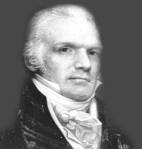 Obama’s reference to Jefferson’s relationship with the Muslim world was an odd note to sound. How about the Barbary Wars (1801 – 1805) against Tripoli? Kind of like saying that the kings of Europe had a close relationship with the Middle East because of the crusades.
Obama’s reference to Jefferson’s relationship with the Muslim world was an odd note to sound. How about the Barbary Wars (1801 – 1805) against Tripoli? Kind of like saying that the kings of Europe had a close relationship with the Middle East because of the crusades.
But the Barbary War was not about religion. It was about money and free trade. Both the Americans and Tripolitans invoked their religions to fight the war – yes, Tripoli called it a jihad. And there was plenty of misunderstanding and hatred because of religion.
Here’s what happened. The Barbary states – Tripoli, Algiers, Tunis, and Morocco – were economies based on piracy, or really privateers since they were state-sponsored. These pirates, as they’d done for centuries since the early 16th century, scoured the Mediterranean capturing ships. The ships and goods were often sold, as were the the crews. Those crewmen who weren’t sold into slavery were ransomed.
Eventually, European powers decided a more stable approach would be to pay tribute to the various Barbary states in return for those states not attacking their ships. Any gangster can tell you what this is – a protection racket. It was a great deal and easy money for the Barbary states.
The U.S. benefited from Britian’s protection while it was a colony. But after winning its independence, the Americans were on their own. With no navy to speak off and an economy in shatters, the United States merchant ships were tempting targets. President Washington and Adams both thought it was simpler and ultimately cheaper to pay off the pirates rather than fight them. They signed treaties and paid tribute, a humiliating experience but at least it guaranteed peace.
But since America was such an economic basket case back then, their payments to the Barbary states were often late. In addition, the Quasi-War with the French (who seized about 300 American merchant ships, 15 times as many as all the Barbary States ever seized) hampered American shipping and cause even greater delays.
Yusuf Karamanli, the pasha of Tripoli, had great ambitions and he saw piracy was a way to boost his treasury and build his power. He aggressively set out to attack various states and ratchet up the tribute they all paid. America was particularly slow in making its payments. So Yusuf decided to make an example of the US and he declared war in 1801.
President Jefferson wanted the war. He believed that the Barbary states would continuously find pretexts to increase tribute payments and harass American shipping – war, in fact, would be cheaper in the end. And it was the honorable thing to do.
Religion had nothing to do with it.



 Posted by barrseitz
Posted by barrseitz